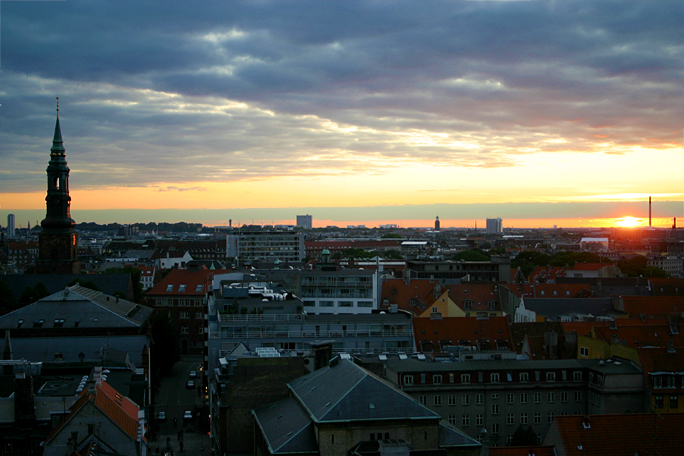“I wish I could travel like you” is something which I do often hear — although it is typically mixed in with “You are insane with the way you travel — how in the world do you do it?!?”
Certainly not on BoardingArea where readers such as you also travel frequently does anyone inform me that they wish that they could travel like me; but I do hear that from people in person. Going to places such as Botswana or Uruguay or South Korea or Spain or Liechtenstein or Lesotho — yes, I still have plenty more trip reports coming — is beyond their comprehension. To them, travel is a luxury of time, money and effort. I keep telling them that there are ways around that and that life is short. Sometimes I will hear “yeah, you’re right — I am going to do that one of these days” or “no, it is just not possible for me.”
Either way, they usually do not embark on traveling — unless you count that car trip on Interstate 30 to Little Rock with a stop at an isolated Stuckey’s off some lone exit along the way…
…and when they do express how they wish they could travel like me, there is usually a hint of jealousy or envy in their voices — sometimes along with the unrealistic expectation that I will actively help them realize their travel dreams with significant input and effort on my part.
I do consider myself fortunate that I have traveled as much as I have — but not for the reasons those other people might think.
Andy Luten of Andy’s Travel Blog — a person with whom I have had the pleasure of meeting over the past year — recorded what he called a “rant” in a video in which he was quite candid about how travel will not fix you; and he posted that video in this article.
He talks about his bouts with depression, with which he admits he has struggled for years and that it runs in the family. I am no expert on depression by any means; but it is important to note that there is a substantial difference between being depressed — a temporary phase of being despondent or unhappy, usually caused by an external source or event — and suffering from depression, which is classified by WebMD as a medical illness. Fortunately, depression can be treated.
Here is the video in case you do not see it below:
While it may be possible to no longer be depressed if you are looking forward to a trip to Paris or Sydney or Cape Town or New York, travel is not an antidote for depression. In fact, you may actually be even more depressed when traveling if you suffer from depression.
As I originally wrote in this article:
If you stop and think about it, travel is very disruptive by nature. You prepare for a trip hoping that you did not forget anything, as there is little you can do once you leave. You travel to the airport — sometimes in traffic. You wait in line as you are processed through the airport security checkpoint at the airport by agents of the Transportation Security Administration — even if you do have credentials which allow you to be expedited faster. You wait — either at the gate or in an airport lounge. You then board the airplane with dozens of other passengers — regardless of to which cabin you are assigned to be seated — and you are hurled through the air at 35,000 feet above the ground in a seat in close quarters.
Upon arrival at your destination, you are in surroundings which are either completely unfamiliar; or at least usually not as familiar as where you are based. You might be in a different time zone, which could confuse your “body clock” and cause jet lag. If you are at a foreign destination, you are processed again — this time through immigration; and my experience in Bahrain was not the most pleasant, as an example.
You might cough because you are not used to being around smokers; go hungry as the food may not generally be to your liking; find that products and services are expensive due to the exchange rate; or be uncomfortable sleeping in a strange bed in a strange room in a strange building thousands of miles from home — and probably thousands of miles from the nearest person whom you know…
…and I have not included such factors as irregular operations, inclement weather, disruptive fellow passengers and other anomalies which could threaten to further deteriorate your travel experience — such as driving a rental car in Cairo, for example; which I will never forget for the rest of my life.
If you feel lonely and depressed while at home, the feeling will most likely be exponentially worse when you are hundreds or thousands of miles away from the nearest person or location or food with which you are familiar. Andy Luten is absolutely correct: travel will not fix you — especially if you travel similarly to the way I and other frequent fliers travel. There are too many things which may go wrong; too many things about which to think; and a significant amount of time and planning in order to properly travel — unless you are spontaneously jetting off to a weekend in London; and even that kind of travel has its own issues which are not for those who are faint of heart.
“Whoever you are when you are not traveling is who you will be when you are traveling,” Andy wisely advises. That statement is in line with what a professor — who was incredibly knowledgeable with how the human brain operates — repeatedly said lecture after lecture while I was matriculated in business school earning my Master of Business Administration degree: “If you are born as an elephant, you will live as an elephant and you will die as an elephant. Do not try to be an aardvark. Rather, the key to life is to live as a happy elephant.”
James Taylor also said it well in his song Secret O’ Life: “The secret of life is enjoying the passage of time. Any fool can do it, there ain’t nothing to it.” He also sings “Try not to try too hard, it’s just a lovely ride.”
Summary
While travel will indeed not fix you, I have staunchly believed for many years that travel helps to broaden the mind. It can improve you; and it offers a far superior education than any book, classroom, or television program ever could, in my opinion. I have learned first-hand about other religions and better understand why people do what they do because of travel. I have seen history live before my eyes, as I mentioned in this article pertaining to New York as one of many examples. I have met many new people from all over the world…
…but it is important to realize that travel will rarely solve your problems. You can literally run away from some problems; but they will be waiting for you when you return from traveling — and they will often be more significant than when you left them.
Other than possibly with medical tourism, travel will not cure any of your maladies. If you suffer from depression when you are at home, you will most likely suffer from it while traveling.
If you are going to travel, please do it for the right reasons: because you want to explore and experience a different environment in ways in which your life will be enriched; and because it is a passion of yours, as it is a passion of mine. Travel is not a “hobby” to me — it is a part of who I am as a person…
…and most importantly, travel with realistic expectations in mind. Some weblogs extol the perceived virtues of travel: how glamorous it is; and how you can do it without spending a penny. Don’t believe them. If you happen to actually experience that elusive utopia of flawless luxury travel for free, count your blessings.
As Andy Luten concluded in that aforementioned article: “To sum it up: make sure the idea of ‘traveling the world’ isn’t a crutch preventing you from working through your junk and living a full life.”
Amen, Andy; and let me add that — because it is a passion of mine and not a “hobby” — travel is a part of living a full life for me.
Now let’s see — to where shall I travel next…?
Photograph of a sunset over Copenhagen ©2008 by Brian Cohen.

